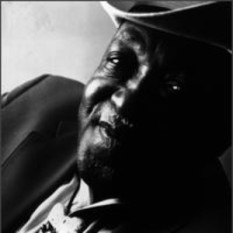Dewey Balfa (March 20, 1927 – June 17, 1992) was an American Cajun fiddler and singer who contributed significantly to the popularity of Cajun music. Balfa was born near Mamou, Louisiana. He is perhaps best known for his 1964 performance at the Newport Folk Festival with Gladius Thibodeaux and Vinus LeJeune, where the group received an enthusiastic response from over seventeen thousand audience members. He sang the song "Parlez Nous à Boire" in the 1981 cult film Southern Comfort, in which he had a small role.
Dewey Balfa was born in Grand Louis, Louisiana, a small community west of Mamou. He was the son of Amay (née Ardoin) and Charles Balfa who were sharecroppers. Dewey had learned most of his songs from his grandmother and father who was a fiddle player.
During World War II, Dewey worked in a shipyard in Orange, Texas. After returning in 1948, he and his brothers Will and Rodney formed the Musical Brothers. In 1965, he formed The Balfa Brothers after an enthusiastic response from a performance at the Newport Folk Festival. This led to their first LP, produced by Swallow Records.
Dewey Balfa married Hilda Frugé when he was 22 in 1949. They had five children together: Nelda, Roberta, Norma, Dewey Jr., and Christine. Many of whom became musicians. Christine founded the band Balfa Toujours to continue the family tradition.
Dewey Balfa appears in a documentary file entitled "Les Blues de Balfa" produced by Yasha Aginsky. In one scene, Balfa is shown with Nathan Abshire entertaining a group of school children. Balfa gives a short lecture concerning the origins of Cajun music:
"We are here to tell you a little bit about what a Cajun is. A Cajun is a person who his homeland was France. Went into Nova Scotia, at the time Acadia, and settled there and was there for about a hundred years, and afterwards the British took over the territory and then the French-speaking people, the French descendants, known as the Acadians, came down to the South-Western part of Louisiana, and that was back in 1755. So over all of these years, your language, and your music has been preserved from daddy to son or daddy to daughter or momma to daughter."
Dewey Balfa was born in 1927 in Grand Louis, a small community near Mamou, Louisiana, to Charles Balfa and Amay Ardoin. There was music in the Balfa household from the beginning, with papa Charles playing the fiddle and singing ballads. Dewey's older brother Will played with his father, and at the age of ten Dewey began to join in as well. In the mid-1940's he formed the Musical Brothers and began playing at Hick's Wagonwheel Club. Along with his brothers Will, Harry, Rodney and Burkeman, Dewey began playing a schedule that would break many musicians today, often playing eight dances a week while holding down a full time job. With the beginnings of rock and roll, however, Cajun music entered a period of decline and the band performed less and less.
In 1964, Dewey was called in as a last minute replacement on guitar to perform at the Newport Folk Festival. This was to be the first time Cajun music was heard in such a context, and many were embarrassed at the thought of what they considered old "chanky-chank" representing Louisiana at such a prestigious event. Here are a few words of Dewey's to describe what happened: "I had played in house dances, family gatherings, maybe a dance hall where you might have seen as many as two hundred people at once. In fact, I doubt I had ever seen two hundred people at once. And in Newport, there were seventeen thousand. Seventeen thousand people who wouldn't let us get off stage."
This incredible response was a major turning point for Dewey, who went home with a new sense of pride in his culture and his music. He got his brothers playing again and began bringing their passionate music to festivals across the globe. While this travelling was important to him, it was the resonance back in Louisiana that mattered most. He got a chance to amplify this resonance in 1974, when the first Tribute to Cajun Music, now known as Festivals Acadiens, was held in Lafayette, Louisiana. With this event, he showed the people of Louisiana just how powerful and important their music was; at the same time he sent a message to the world that the culture was standing tall and reviving itself. The Balfa Brothers emerged from the festival as ambassadors of the culture, and they continued that mission for many years.
Tragically, Dewey lost his brothers Will and Rodney in an automobile accident in 1979. To add to that already horrific loss, his wife Hilda passed away in 1980. These combined tragedies were almost enough to bring him down, but he realized that his only choice was to carry on with the goal he had set for himself and his only relief from the suffering was the music itself. He gradually began playing and travelling again, earning a National Heritage Fellowship in 1982. Throughout the 1980's he shared his music with countless audiences and taught many workshops as musicians from around the country became attracted to Cajun music. He continued playing until his death in June of 1992, when he finally succumbed to the cancer that had been hounding him for some time. .
You can find information through the best music search engine - Muzlan.top 😊All materials on request "Dewey Balfa" are available on page Dewey Balfa
Yes of course. You can listen tracks on the page Dewey Balfa
Yes of course. You can download tracks on the page Dewey Balfa
This page is found by queries: Dewey Balfa free download, Dewey Balfa flac, Dewey Balfa track minus, Dewey Balfa remix, Dewey Balfa song listen

